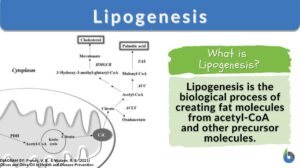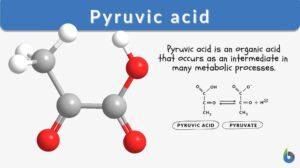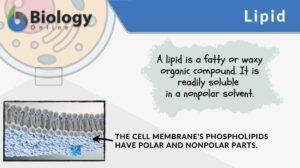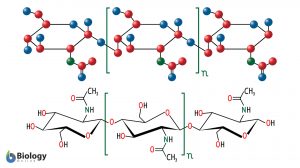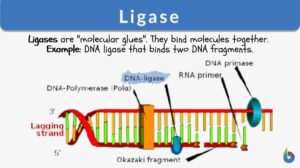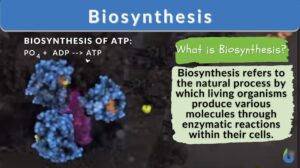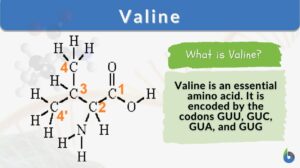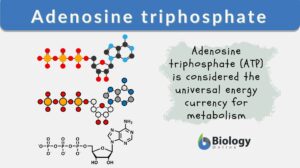Search Results for: acetyl
Krebs cycle
Krebs cycle, also known as the citric acid cycle or tricarboxylic acid (TCA) cycle, is a fundamental metabolic pathway that... Read More
Glycolysis
What is Glycolysis and Why is it Important? Glycolysis is a metabolic pathway by which the 6-carbon molecule of glucose is... Read More
Lipogenesis
Lipogenesis Definition Lipogenesis is the process of producing lipid or fat to store biochemical energy for later metabolic... Read More
Cellular respiration
Cellular Respiration Definition What is cellular respiration in simple terms? Cellular respiration can be defined simply as... Read More
Acetyl Coenzyme A
Acetyl coenzyme a coenzyme a (coa, CoASH, or HSCoA) is a coenzyme, notable for its role in the synthesis and oxidization of... Read More
Pyruvic acid
What is Pyruvic Acid? Pyruvic acid is an organic acid that occurs as an intermediate in many metabolic processes. It occurs... Read More
Catabolism
Catabolism Definition Catabolism is the branch of the metabolic process that breaks down complex, big molecules into... Read More
Carbon fixation
Carbon Fixation Definition We know that the earth contains many elements. The periodic table shows us just how many... Read More
N-acetylglucosamine
Definition noun An amino sugar derivative of glucose, with a chemical formula of C8H15NO6, and serves as a major component... Read More
Protein Activity and Cellular Metabolism
Protein Binding Sites The ability of various molecules and ions to bind to specific sites on the protein surface forms the... Read More
Fatty acid
Definition noun plural: fatty acids'' fatty acid, ˈfætɪ ˈæsɪd Any of the group of a long chain of hydrocarbon... Read More
Plant Metabolism
Introduction Plants are responsible for incredible feats of molecular transformation. The processes are always being... Read More
Fermentation
Fermentation Definition What is fermentation? Fermentation is the breaking down of sugar molecules into simpler compounds... Read More
White adipose tissue
Definition noun, plural: white adipose tissues A type of adipose tissue found in mammals used to store energy and acts as... Read More
Hexosaminidase A
Definition noun A hydrolytic enzyme implicated in the breakdown of ganglioside producing... Read More
Citric Acid Cycle
Definition noun (1) A cycle of reactions catalyzed by enzymes in which pyruvate derived from nutrients and converted to... Read More
Anaerobic bacteria
Bacteria are classified according to the need for oxygen to survive and grow. For example, aerobic bacteria are bacteria... Read More
Lysosomal enzyme
Definition noun plural: lysosomal enzymes ly·so·somal en·zyme, ˈlaɪsəˌsoʊm əl ˈɛnzaɪm (biochemistry) Any of... Read More
Human milk oligosaccharide
Definition noun plural: human milk oligosaccharides An oligosaccharide that occurs in high concentrations and exclusively... Read More
Biosynthesis
Biosynthesis Definition Biosynthesis refers to the production (synthesis) of a complex chemical compound from simpler... Read More
Chemiosmosis
Chemiosmosis Definition What is chemiosmosis? In biology, chemiosmosis refers to the process of moving ions (e.g. protons)... Read More
Clostridium tetani
Definition noun An obligate anaerobic rod shaped and gram-positive bacterium which appears to looks like a drumstick that is... Read More
Embden-Meyerhof-Parnas pathway
Definition noun A glycolytic pathway whereby glucose is metabolized and converted ultimately to pyruvate, and results in a... Read More
Stearic acid
Definition noun, plural: stearic acids A eighteen-carbon fatty acid, with the formula: C18H36O2 Supplement A fatty acid is a... Read More
Adenosine triphosphate
Adenosine Triphosphate Definition noun plural: adenosine triphosphates (biochemistry) An organic compound that is... Read More
Progesterone
Definition noun, plural: progesterones A progestogen hormone, with a chemical formula of C21H30O2, naturally produced in... Read More
Demecolcine
Definition noun (cytogenetics) A cytotoxic alkaloid isolated from Colchicum autumnale, and is used as an antineoplast... Read More



